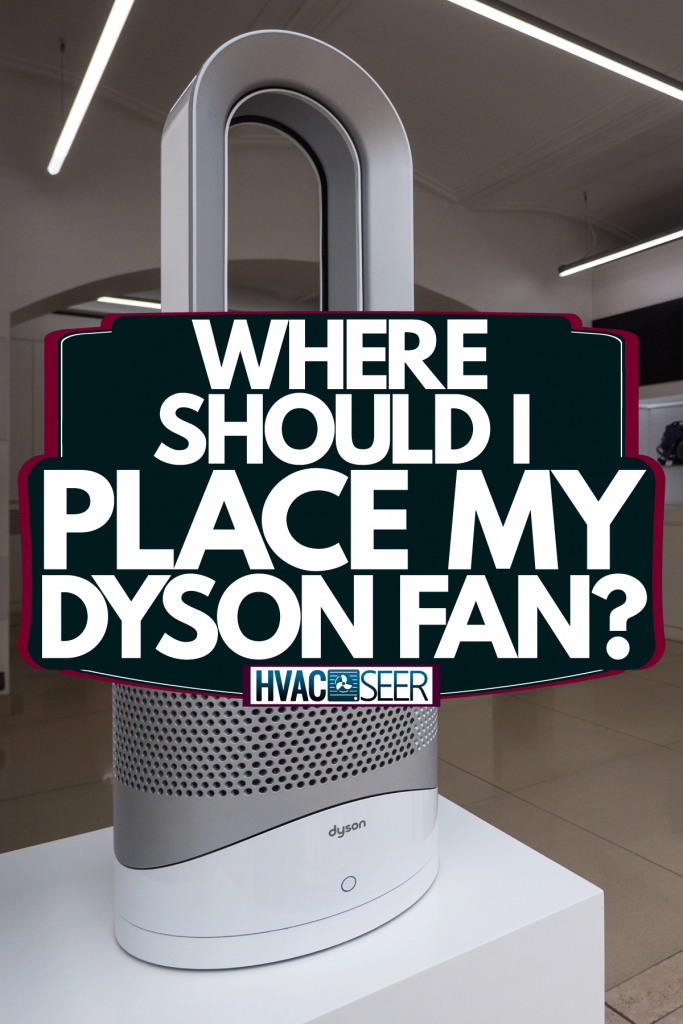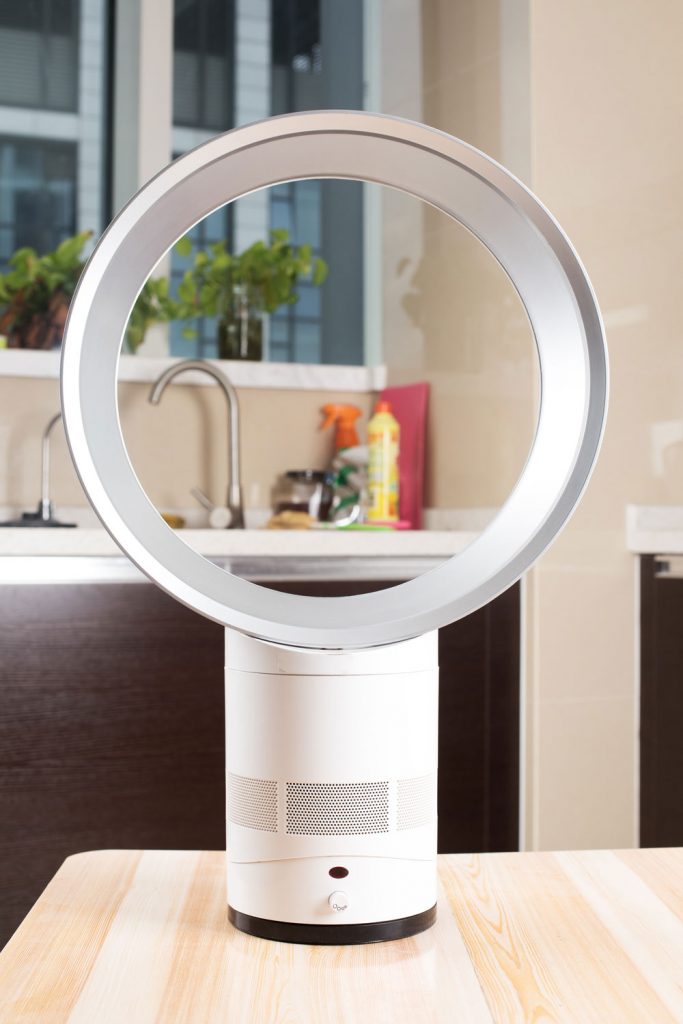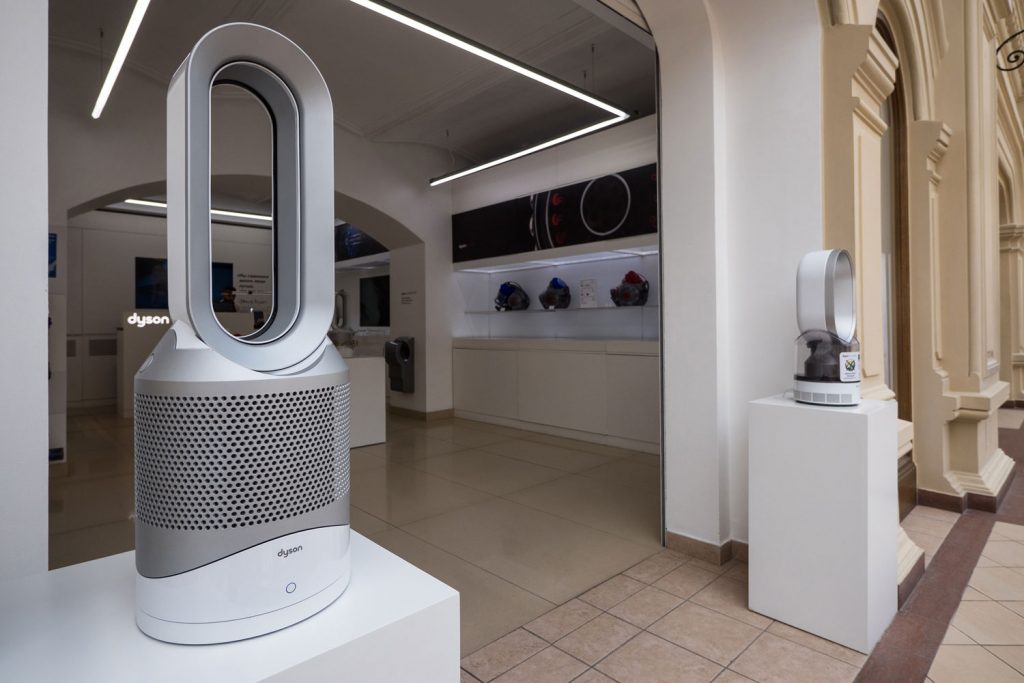The Dyson company is a well-respected manufacturer of household fans that purify the air, which is excellent for maintaining an allergen-free and dust-free home. If you have one or are considering purchasing a new fan, you may have wondered where you should put the fan. We've looked into this and have informative answers for you.
The Dyson company fans are engineered to circulate and purify the air in one medium to large-sized room. Dyson suggests placing the fan in the area of your home where you spend most of your time to maximize the air circulation and purification benefits of owning a Dyson fan.
Are you interested in learning more about the Dyson fans' electricity usage? Perhaps you are wondering if you could leave the fan on continuously? Or are you curious if Dyson fans are considered better than the generic brand fans on the market? Please continue reading; we have great information to share with you!

Where to put the Dyson Fan?
According to Dyson, the best place to set your fan is in the room where you and your loved ones spend most of their time. Dyson strongly suggests when you are setting up your fan—ensure that there are a few feet of space around all sides of the fan for air to circulate correctly.
Do not have the fan close to a wall or in an enclosed area—it will prevent air circulation that is vital for the machine to operate properly.
The Dyson fans are lightweight and easy to move. You could move it to different rooms in your home to circulate the air and remove harmful pollutants, for example.
If you have a dinner party and plan to spend the majority of the evening in your dining room, set the Dyson fan in the dining room a couple of hours before your guests arrive to remove stale air and improve the breathability in the room. After the dinner party, return this small appliance to its regular setting place.
Do Dyson fans cool down a room?
Dyson fans and air purifiers are not manufactured with air conditioning or any cooling components. These fans will not cool down the room like an air conditioner. Instead, they will continuously circulate the air that will cool the room a bit and assist in dispersing the cool AC air in your house or office.
Many consumers have been confused by some of the Dyson fans' titles, such as "The Dyson Cooling Tower." This product does circulate the air in small apartments or large rooms. However, it is not an air conditioner, and it will not change the room's temperatures --only circulate the room's air.
Can you leave a Dyson fan on all the time?
How long you could safely leave a Dyson fan on will depend on a few variables. Firstly, which Dyson model you have and where it is in the home. Secondly, if you use a heater setting fan, the unit will automatically shut off the fan once the appliance has reached the programmed temperature.
Leaving a fan or any secondary appliance running when you are not home is not advisable for safety reasons.
Also, to note: the Dyson company does not directly state whether its fans should or can be left on continuously. Rather, they mention using the digital programming features to achieve comfortable temperatures and excellent air quality in your home via timed usage rather than continually running the fans.
Are you wondering how long you could leave your kitchen ceiling fan running? Click here to read our article "How Long Can A Ceiling Fan Run Continuously?"

Does the Dyson fan use a lot of electricity?
According to the cooling and heating research group, Temperature Master, a Dyson cool air multiplier fan's average power rating used per hour is 26 watts. In comparison, a standard tabletop fan uses 50 watts, which means the Dyson fan utilizes nearly half the electrical wattage.
Moreover, these energy estimates will vary depending on the model, room temperature, time of use, energy costs based on location, and where the fan is in the house.
The Dyson Cool Tower fan is excellent for large rooms. This fans' estimated electrical usage ranges between 6 to 56 watts depending on the power settings. Suppose this unit was used daily for a year. It would utilize roughly 490 units (kWh) of electricity, far less than other floor fans that don't offer air purifier features or wifi connection capabilities.
Click here to view the Dyson Cool Air Multiplier on Amazon.
How much does it cost to run a Dyson fan overnight?
Firstly, to determine the cost, you must know the exact Dyson fan model and how many hours the fan was on overnight. Research the price per kilowatt of energy where you live. The best way to do this is to visit your energy companies website and find the current energy costs.
Depending on your electric company, they may offer an energy usage calculator where you could type your hours of electrical usage and the wattage of the fan to determine the exact costs to run your fan overnight.
Please remember that the cost of kilowatts does fluctuate throughout the year, depending upon several variables:
- Where you live
- What power sources your electric company uses
- The time of year
To roughly estimate the energy costs per night. Multiply the number of power use watts by the number of hours of energy usage. For example, if the fan uses 56 watts and is running overnight for 10 hours and the cost per kilowatt is 0.10, the final price for the overnight usage is 0.0560 =$0.56.
Does your home have central AC? Perhaps you wonder if adding a few extra ceiling or freestanding fans will help your AC unit circulate cool air throughout your house? Click here to read "Do Ceiling Fans Help AC?"
Is a Dyson fan better than a normal fan?
The Dyson fans do have a hefty price tag. However, the Dyson fans offer much more than an average fan with three settings and a lot of extra noise! The Dyson company also manufactures fan units that combine air-purifying, cooling, and heating.
These appliances are much more than a simple fan. Rather an investment in the air quality of your home and temperature enhancements for exceptional indoor climate control.
The Dyson company engineered its products for the safety of children and pets in mind. Considering that the fans do not have moving fan blades, that could be hazardous for small children and pets.
These bladeless fans are 75% quieter than other popular fans on the market. Moreover, the sleek modern, bladeless design is easy to clean and only takes a minute or less to wipe the fan with a damp or dry cloth.
The benefits of choosing a Dyson fan with an air purifier
The majority of Dyson fan models have purifying features with HEPA filters, remote, and wifi controls that make operating the fan as easy as tapping an app on your phone. Having a tiring day at work? Tap the Dyson app and choose the setting for your fan--when you come home, your house will be well circulated with clean, refreshing air.
Suppose you or a loved one suffer from allergies or asthma. The Dyson fans with air purifiers are manufactured with a high-quality HEPA filter engineered to remove 99.7% of allergens and pollutants, even allergens as small as 0.3 microns.
Also, the HEPA filter will remove all gases, odors, household fumes, and formaldehyde from the air you breathe, making the interior of your home an oasis protected from polluted air.
Click here to view the Dyson Cool with air purifier on Amazon.
For energy-conscious consumers, choosing to invest in a Dyson fan is a wise decision for reducing energy usage in your home, which will result in minimizing your future electric bills. Moreover, your investment is protected by a Dyson manufacturer guarantee to fix or replace any malfunctioning components during the initial two years of ownership.
In closing

The continual efforts required to maintain an allergen-free home are labor-intensive tasks. However, Dyson fans are essential for having an inviting home with dust-free air circulation to ensure keeping your home clean is a bit easier. We hope this article was helpful to you. Please visit HVAC Seer soon for more helpful cooling and heating content!
Please, be sure to check out some of our other posts for further information and inspiration!
Does An Attic Fan Help With Humidity?


